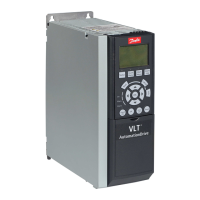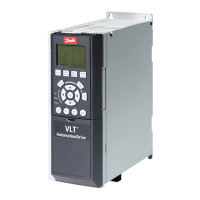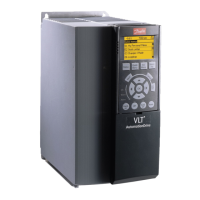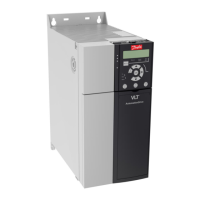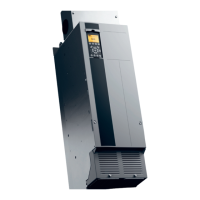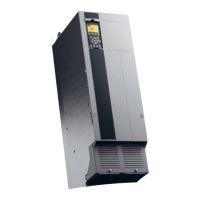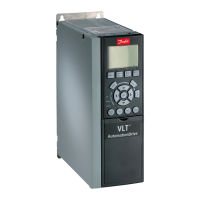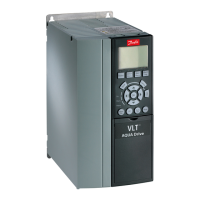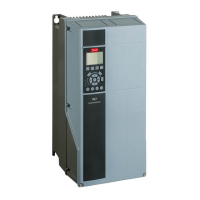Speed accuracy (open-loop) 30–4000 rpm: error ±8rpm
Speed accuracy (closed-loop), depending on resolution of feedback device 0–6000 rpm: error ±0.15 rpm
Torque control accuracy (speed feedback) max error±5% of rated torque
All control characteristics are based on a 4-pole asynchronous motor
Environment:
Enclosure IP20
1)
/ Type 1, IP21
2)
/ Type 1, IP55/ Type 12, IP 66
Vibration test 1.0g
Max. relative humidity 5%–93% (IEC 721-3-3; Class 3K3 (non-condensing) during operation
Aggressive environment (IEC 60068-2-43) H
2
S test
class Kd
Ambient temperature
3)
Max. 122°F [50°C] (24-hour average maximum 113°F [45°C])
1)
Only for
≤
5 hp [3.7 kW] (200–240V),
≤
10 hp [7.5 kW] (400–480/ 500V)
2)
As enclosure kit for
≤
5 hp [3.7 kW] (200–240V),
≤
10 hp [7.5 kW] (400–480/ 500V)
3)
Derating for high ambient temperature, see special conditions in the Design Guide
Minimum ambient temperature during full-scale operation 32°F [0°C]
Minimum ambient temperature at reduced performance 14°F [-10°C]
Temperature during storage/transport -13°–149°/158°F [-25°–+65°/70°C]
Maximum altitude above sea level without derating 3280 ft [1000 m]
Derating for high altitude, see special conditions in the Design Guide.
EMC standards, Emission EN 61800-3, EN 61000-6-3/4, EN 55011
EMC standards, Immunity
EN 61800-3, EN 61000-6-1/2,
EN 61000-4-2, EN 61000-4-3, EN 61000-4-4, EN 61000-4-5, EN 61000-4-6
See section on special conditions in the Design Guide.
Protection and Features:
•
Electronic thermal motor protection against overload.
•
Temperature monitoring of the heatsink ensures that the adjustable frequency drive trips if the temperature
reaches a predefined level. An overload temperature cannot be reset until the temperature of the heatsink is
below the values stated in the tables on the following pages (guideline - these temperatures may vary for different
power sizes, frame sizes, enclosure ratings, etc.).
•
The adjustable frequency drive is protected against short-circuits on motor terminals U, V, W.
•
If a line phase is missing, the adjustable frequency drive trips or issues a warning (depending on the load).
•
Monitoring of the intermediate circuit voltage ensures that the adjustable frequency drive trips if the intermediate
circuit voltage is too low or too high.
•
The adjustable frequency drive constantly checks for critical levels of internal temperature, load current, high
voltage on the intermediate circuit and low motor speeds. As a response to a critical level, the adjustable
frequency drive can adjust the switching frequency and/or change the switching pattern in order to ensure the
performance of the adjustable frequency drive.
Specifications
VLT
®
AutomationDrive Instruction
Manual
MG.33.AI.22 - VLT
®
is a registered Danfoss trademark 10-15
10
10
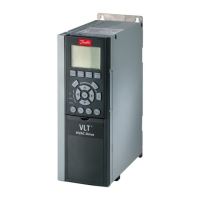
